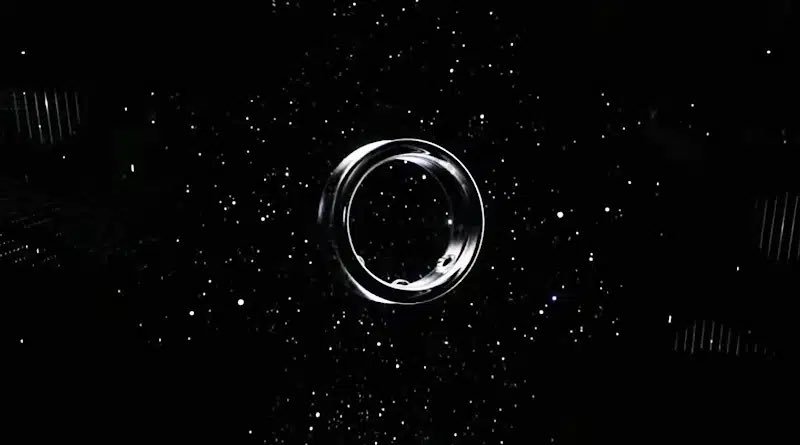HIGHLIGHTS
- The Samsung Galaxy Ring can be available in sizes up to 22.2mm,
- The smart ring is designed as a lightweight health tracker.
- The Samsung Galaxy Ring can support atrial fibrillation (AFib) detection.

The unveiling of the Samsung Galaxy Ring took place during the Galaxy Unpacked event on Wednesday, January 17th. It was accompanied by a small demo video that hinted at the design. It was claimed to be a “health and wellness facility”. However, the company did not reveal any details about the features or confirm the launch timeline.
Read Also
A Reddit user spotted the Samsung Galaxy Ring in the Good Lock app in the battery widgets section alongside other Samsung devices. This suggests that the device is under development and is likely to be launched soon. It was previously reported to launch later this year alongside the rumored Samsung Galaxy Z Fold 6 and Galaxy Z Flip 6.
Samsung Galaxy Ring About
An earlier report claimed that the upcoming Galaxy Ring would be “incredibly” lightweight. It is expected to be available in several sizes up to size 13 (22.2mm). The smart ring can also be launched in three color variants. It is probable that it will also facilitate charging through pogo pins.
From the company’s Samsung Smart Ring trailer earlier this year, we saw a round, smooth ring equipped with multiple sensors located on the underside.
They are expected to help users track their health and fitness. The company promotes it as a “powerful and affordable health and wellness device.”
The Galaxy Ring, like most health and fitness trackers, has been designed to be able to track, measure, monitor and upload health, fitness and sleep data to the apps you need. Earlier leaks suggested the device could carry electrocardiogram (ECG),
photoplethysmography (PPG), or atrial fibrillation or AFib sensors, along with the more common 24×7 heart rate, SpO2, and sleep tracker.
